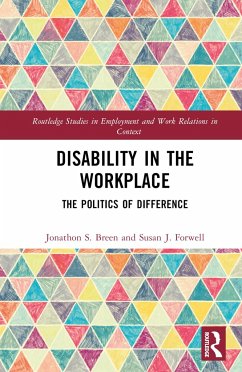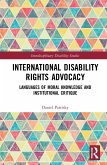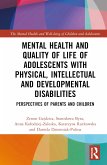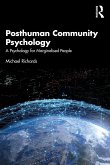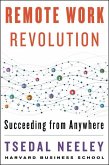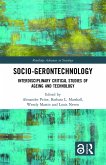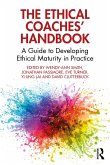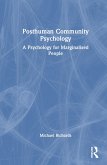This book introduces the difference model of disability. Framed within an affect-based understanding of the relationships between those living with impairments and others, this new model offers a reconsideration of the construct of disability itself. Disability is flexible, relational, and perceived through an acognitive lens.
At a practice level, the difference model offers a framework for creating more positive and successful relationships between people with disabilities (PWDs) and others within the workplace. This includes two new tools, the Co-Worker Acceptance of Disabled Employees (CADE) Scale and the Perceived Barriers to Employing Persons with Disabilities (PBED) Scale. Designed to measure workplace attitudes, and changes to these attitudes, each of these scales provides empirical evidence in support of strategic planning and, ultimately, an increased representation of PWDs. Finally, this book considers the effects of language and technology on workplace attitudes toward disability.
At a practice level, the difference model offers a framework for creating more positive and successful relationships between people with disabilities (PWDs) and others within the workplace. This includes two new tools, the Co-Worker Acceptance of Disabled Employees (CADE) Scale and the Perceived Barriers to Employing Persons with Disabilities (PBED) Scale. Designed to measure workplace attitudes, and changes to these attitudes, each of these scales provides empirical evidence in support of strategic planning and, ultimately, an increased representation of PWDs. Finally, this book considers the effects of language and technology on workplace attitudes toward disability.
"Equitable employment is vital if we want to transform lives of persons with disabilities. This is an enthralling contribution to the disability debate, benefitting from a grounding in empirical social science. I warmly welcome it." - Tom Shakespeare, Professor of Disability Research London School of Hygiene & Tropical Medicine
"This is the very first book to present a holistic perspective on the scope of practices in disability employment inclusiveness. It distinguishes itself by exploring the erstwhile uncharted territory in how psychosocial assumptions undergird employment access and practices, drawing from the broader and emerging scholarship on disability work inclusion to guide local adaptations and practices. Readers will find this book to be an invaluable landmark guide to understanding their evolving disability inclusion employment practices in the diversifying world of work." - Elias Mpofu, Professor of Rehabilitation and Health Services, College of Health and Public Service, University of North Texas
"At a moment when social justice issues are at an all-time high in focus, it is most timely to have a book on this topic. Employment equity for people with disabilities, particularly those with intersectional identities and often multiply marginalized, is a critical topic for inclusion in this discourse." - Susanne Bruyère, Professor of Disability Studies, Academic Director, Yang-Tan Institute on Employment and Disability, School of Industrial and Labor Relations, Cornell University
"This is the very first book to present a holistic perspective on the scope of practices in disability employment inclusiveness. It distinguishes itself by exploring the erstwhile uncharted territory in how psychosocial assumptions undergird employment access and practices, drawing from the broader and emerging scholarship on disability work inclusion to guide local adaptations and practices. Readers will find this book to be an invaluable landmark guide to understanding their evolving disability inclusion employment practices in the diversifying world of work." - Elias Mpofu, Professor of Rehabilitation and Health Services, College of Health and Public Service, University of North Texas
"At a moment when social justice issues are at an all-time high in focus, it is most timely to have a book on this topic. Employment equity for people with disabilities, particularly those with intersectional identities and often multiply marginalized, is a critical topic for inclusion in this discourse." - Susanne Bruyère, Professor of Disability Studies, Academic Director, Yang-Tan Institute on Employment and Disability, School of Industrial and Labor Relations, Cornell University

